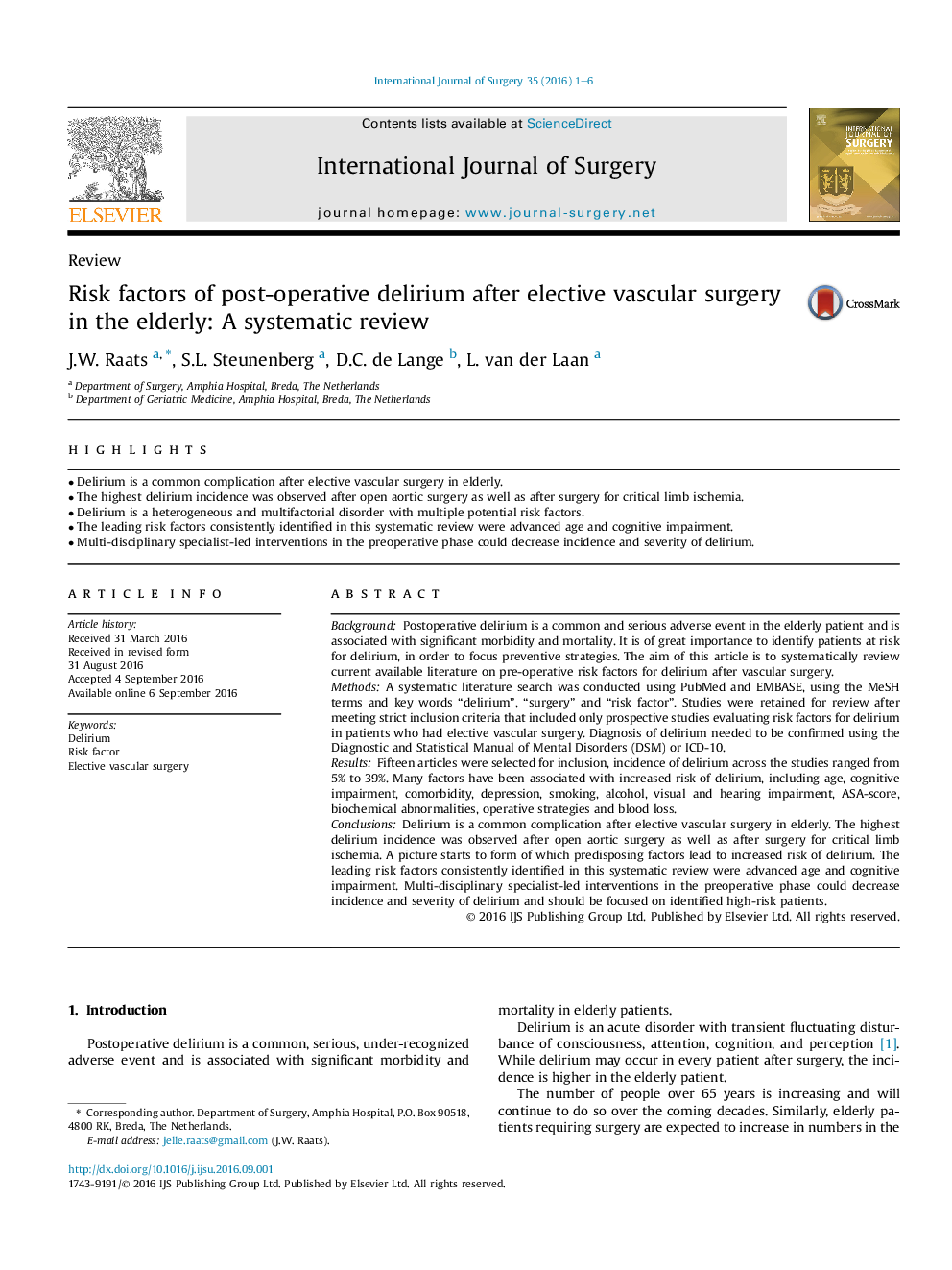| Article ID | Journal | Published Year | Pages | File Type |
|---|---|---|---|---|
| 4285212 | International Journal of Surgery | 2016 | 6 Pages |
•Delirium is a common complication after elective vascular surgery in elderly.•The highest delirium incidence was observed after open aortic surgery as well as after surgery for critical limb ischemia.•Delirium is a heterogeneous and multifactorial disorder with multiple potential risk factors.•The leading risk factors consistently identified in this systematic review were advanced age and cognitive impairment.•Multi-disciplinary specialist-led interventions in the preoperative phase could decrease incidence and severity of delirium.
BackgroundPostoperative delirium is a common and serious adverse event in the elderly patient and is associated with significant morbidity and mortality. It is of great importance to identify patients at risk for delirium, in order to focus preventive strategies. The aim of this article is to systematically review current available literature on pre-operative risk factors for delirium after vascular surgery.MethodsA systematic literature search was conducted using PubMed and EMBASE, using the MeSH terms and key words “delirium”, “surgery” and “risk factor”. Studies were retained for review after meeting strict inclusion criteria that included only prospective studies evaluating risk factors for delirium in patients who had elective vascular surgery. Diagnosis of delirium needed to be confirmed using the Diagnostic and Statistical Manual of Mental Disorders (DSM) or ICD-10.ResultsFifteen articles were selected for inclusion, incidence of delirium across the studies ranged from 5% to 39%. Many factors have been associated with increased risk of delirium, including age, cognitive impairment, comorbidity, depression, smoking, alcohol, visual and hearing impairment, ASA-score, biochemical abnormalities, operative strategies and blood loss.ConclusionsDelirium is a common complication after elective vascular surgery in elderly. The highest delirium incidence was observed after open aortic surgery as well as after surgery for critical limb ischemia. A picture starts to form of which predisposing factors lead to increased risk of delirium. The leading risk factors consistently identified in this systematic review were advanced age and cognitive impairment. Multi-disciplinary specialist-led interventions in the preoperative phase could decrease incidence and severity of delirium and should be focused on identified high-risk patients.
